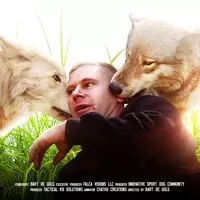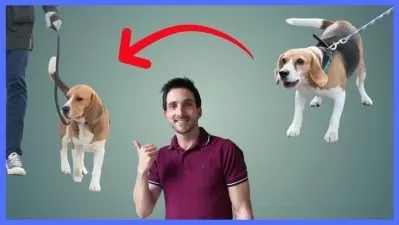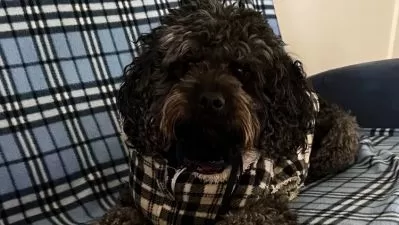How do dogs learn? - Foundation of Animal Behavior
Bart de Gols
3:58:04
Description
From Tyrant to Teacher - Foundation of Animal Behavior
What You'll Learn?
- Domestication of the Canis Lupus Familiaris or Modern dog
- Foundation of Behaviorism
- Classical Conditioning and Pavlovian conditioning
- Operant Conditioning
- How Dogs Learn
- Stress in Dogs that affect Learning
- Other Factors that affect Learning in Dogs
Who is this for?
What You Need to Know?
More details
DescriptionDID YOU KNOW THAT THERE IS ONE MISSING PIECE IN DOG TRAINING THAT CAN CHANGE EVERYTHING?
You may have experience training dogs and still encounter problems in your training. You may have visited or hired many other trainers and still facing the same problems. Or, if you’re new at dog training you most certainly will find yourself up against a few obstacles before you are able to fully train your dog. Or if you are just someone who is interested in the world of Animal Behavior you have come to the right place.
There are lots of courses out there, and a number of basic techniques to assumingely teach your dog “commands†and to follow your lead. Or courses that rely on tools like e-collars etc. But they don’t cover one of the most important things that can help you unlock a whole new perspective and a way to relate to your dog to get the most out of your relationship with your dog.
I’m Cynologist Bart de Gols, who has been working with canines for over 30 years. I developed my own highly-regarded relationship based training program to help humans create the best possible relationship with their dog. I also develop highly-skilled protection and working canines for Tactical K9 Solutions. My years of extensive experience have taught me that dog training isn’t just clicking with a clicker, presenting food or giving a correction or using tools like E-Collars and pinch collars. Dog training is a science, and we need to understand how dogs learn. Now, I’m ready to take my expertise and share the one thing that will make all the difference in your own dog training and your relationship with your dog!
SO…ARE YOU WONDERING JUST WHAT THAT ONE MISSING PIECE IN DOG TRAINING IS?
The answer is understanding animal behavior and the process of how dogs learn. It may sound simple enough, but it is the most overlooked aspect of training. To get the results you want, you can’t train an animal how you as a human want to train them, but you need to understand how they learn and communicate. It is crucial to meet the animal where they are versus where you want them to be.
In my ground-breaking Udemy Course, From Tyrant to Teacher, - Foundation of Animal Behavior, I am uncovering the secrets of science-based knowledge on how animals truly learn. This is the key to unlocking that final missing piece to help make dog training easy.
In From Tyrant to Teacher Foundation of Animal Behavior , you’ll learn:
The Domestication Process of the Canis lupus Familiaris or Modern Dog
How animals Learn
The difference between Innate and Learned Behaviors
In depth information about behaviorism
A deep dive into Classical and Operant Conditioning
Advanced concepts of operant conditioning (made easy!)
Stimuli and Stimuli Control
Advanced concepts of Schedules of Reinforcement
Stress and how it affects learning
Setting up a training plan correctly
And much, much more!
This course stands out because it goes beyond the surface level of dog training, offering no quick how-to’s or practical tips. Instead, it delves into the scientific understanding of how dogs learn, providing a rich foundation of knowledge that empowers you to build a stronger, more responsive relationship with your dog. Designed for both seasoned trainers facing challenges and novices intrigued by animal behavior, "From Tyrant to Teacher" is a profound testament to the power of education and understanding in transforming human-canine relations.
"From Tyrant to Teacher: The Foundation of Animal Behavior" is designed explicitly to educate the human, shifting the paradigm from a dominator to an enlightened guide. This course underscores the importance of scientific knowledge in understanding how our dogs learn, paving the way for a relationship rooted in mutual respect and profound connection.
Are you ready to lead with compassion, to transform your approach from commands to communication, and to unlock the true potential of your bond with your dog? "From Tyrant to Teacher" is your gateway to becoming the informed, empathetic leader your dog needs and deserves.
Transform your dog training journey today. Embrace the opportunity to educate yourself, to move beyond quick fixes and step into a world of understanding and empathy. Enroll in "From Tyrant to Teacher: The Foundation of Animal Behavior" now, and embark on a transformative journey that will elevate your relationship with your dog to unprecedented heights.
ARE YOU READY TO FINALLY BE THE TEACHER YOUR DOGS NEEDS?
Who this course is for:
- Anyone that is interested in a career in dog training or wants to learn the foundation of Animal Behavior
DID YOU KNOW THAT THERE IS ONE MISSING PIECE IN DOG TRAINING THAT CAN CHANGE EVERYTHING?
You may have experience training dogs and still encounter problems in your training. You may have visited or hired many other trainers and still facing the same problems. Or, if you’re new at dog training you most certainly will find yourself up against a few obstacles before you are able to fully train your dog. Or if you are just someone who is interested in the world of Animal Behavior you have come to the right place.
There are lots of courses out there, and a number of basic techniques to assumingely teach your dog “commands†and to follow your lead. Or courses that rely on tools like e-collars etc. But they don’t cover one of the most important things that can help you unlock a whole new perspective and a way to relate to your dog to get the most out of your relationship with your dog.
I’m Cynologist Bart de Gols, who has been working with canines for over 30 years. I developed my own highly-regarded relationship based training program to help humans create the best possible relationship with their dog. I also develop highly-skilled protection and working canines for Tactical K9 Solutions. My years of extensive experience have taught me that dog training isn’t just clicking with a clicker, presenting food or giving a correction or using tools like E-Collars and pinch collars. Dog training is a science, and we need to understand how dogs learn. Now, I’m ready to take my expertise and share the one thing that will make all the difference in your own dog training and your relationship with your dog!
SO…ARE YOU WONDERING JUST WHAT THAT ONE MISSING PIECE IN DOG TRAINING IS?
The answer is understanding animal behavior and the process of how dogs learn. It may sound simple enough, but it is the most overlooked aspect of training. To get the results you want, you can’t train an animal how you as a human want to train them, but you need to understand how they learn and communicate. It is crucial to meet the animal where they are versus where you want them to be.
In my ground-breaking Udemy Course, From Tyrant to Teacher, - Foundation of Animal Behavior, I am uncovering the secrets of science-based knowledge on how animals truly learn. This is the key to unlocking that final missing piece to help make dog training easy.
In From Tyrant to Teacher Foundation of Animal Behavior , you’ll learn:
The Domestication Process of the Canis lupus Familiaris or Modern Dog
How animals Learn
The difference between Innate and Learned Behaviors
In depth information about behaviorism
A deep dive into Classical and Operant Conditioning
Advanced concepts of operant conditioning (made easy!)
Stimuli and Stimuli Control
Advanced concepts of Schedules of Reinforcement
Stress and how it affects learning
Setting up a training plan correctly
And much, much more!
This course stands out because it goes beyond the surface level of dog training, offering no quick how-to’s or practical tips. Instead, it delves into the scientific understanding of how dogs learn, providing a rich foundation of knowledge that empowers you to build a stronger, more responsive relationship with your dog. Designed for both seasoned trainers facing challenges and novices intrigued by animal behavior, "From Tyrant to Teacher" is a profound testament to the power of education and understanding in transforming human-canine relations.
"From Tyrant to Teacher: The Foundation of Animal Behavior" is designed explicitly to educate the human, shifting the paradigm from a dominator to an enlightened guide. This course underscores the importance of scientific knowledge in understanding how our dogs learn, paving the way for a relationship rooted in mutual respect and profound connection.
Are you ready to lead with compassion, to transform your approach from commands to communication, and to unlock the true potential of your bond with your dog? "From Tyrant to Teacher" is your gateway to becoming the informed, empathetic leader your dog needs and deserves.
Transform your dog training journey today. Embrace the opportunity to educate yourself, to move beyond quick fixes and step into a world of understanding and empathy. Enroll in "From Tyrant to Teacher: The Foundation of Animal Behavior" now, and embark on a transformative journey that will elevate your relationship with your dog to unprecedented heights.
ARE YOU READY TO FINALLY BE THE TEACHER YOUR DOGS NEEDS?
Who this course is for:
- Anyone that is interested in a career in dog training or wants to learn the foundation of Animal Behavior
User Reviews
Rating
Bart de Gols
Instructor's Courses
Udemy
View courses Udemy- language english
- Training sessions 17
- duration 3:58:04
- Release Date 2024/04/30










